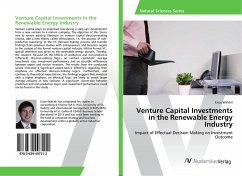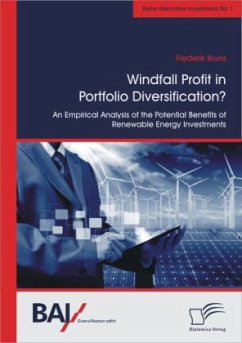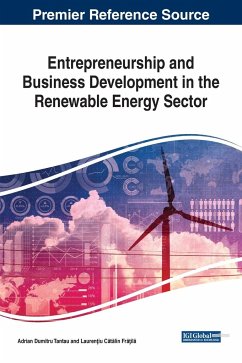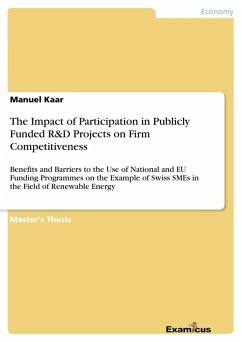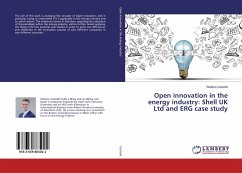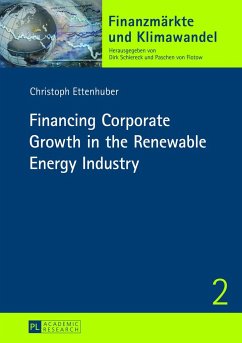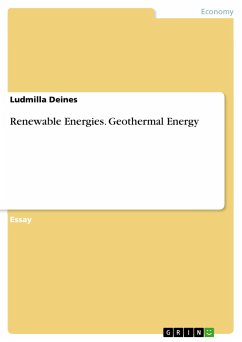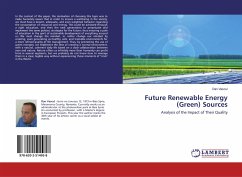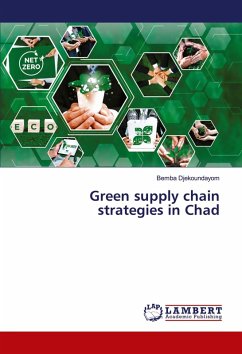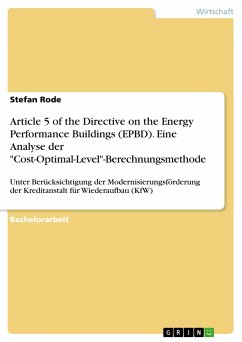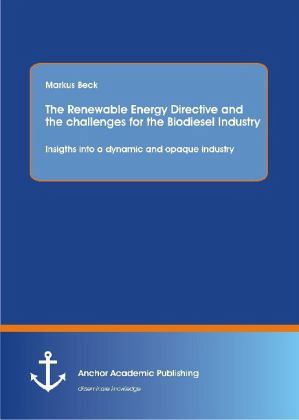
The Renewable Energy Directive and the challenges for the Biodiesel Industry: Insigths into a dynamic and opaque industry
Versandkostenfrei!
Versandfertig in 6-10 Tagen
54,99 €
inkl. MwSt.

PAYBACK Punkte
0 °P sammeln!
In response to climate change, and unsustainable energy consumption, the European Parliament launched a climate and energy package in 2009. This included the 20:20:20 Energy Strategy whose aim was to decrease the effects of climate change, in particular by lowering greenhouse gas (GHG) emissions by 2020. This 10-year action plan proposes measures to increase the current efficiency levels of energy use, and raises the share of renewable energies within the energy mix for all 27 EU Member States. As a result, the increased use of biofuels, particularly in the transport sector, will be an importa...
In response to climate change, and unsustainable energy consumption, the European Parliament launched a climate and energy package in 2009. This included the 20:20:20 Energy Strategy whose aim was to decrease the effects of climate change, in particular by lowering greenhouse gas (GHG) emissions by 2020. This 10-year action plan proposes measures to increase the current efficiency levels of energy use, and raises the share of renewable energies within the energy mix for all 27 EU Member States. As a result, the increased use of biofuels, particularly in the transport sector, will be an important part of a more complex framework. Although, biofuels represent only two per cent of total transport fuels used, political incentives, technology, and efficiency improvements could increase this by eight per cent in Europe by 2020.
In line with the 20:20:20 Strategy, the Renewable Energy Directive (RED) was introduced to regulate the overall biofuel market, amongst others. Based on the RED s definition of sustainability, different certification schemes emerged, aimed at creating a uniform biofuel standard within Europe. At present, the overall scale and scope of environmental and social impacts associated with the biofuel supply chain are not well defined, and this will be evaluated within this work. Furthermore, close ties between the biofuel supply chain, and other sectors, including food and crude oil industries lead to associations with issues such as deforestation, pollution and food supply shortages. Thus, this book will analyse whether RED actually supports such a low-carbon pathway or it mainly supports the local industry.
In line with the 20:20:20 Strategy, the Renewable Energy Directive (RED) was introduced to regulate the overall biofuel market, amongst others. Based on the RED s definition of sustainability, different certification schemes emerged, aimed at creating a uniform biofuel standard within Europe. At present, the overall scale and scope of environmental and social impacts associated with the biofuel supply chain are not well defined, and this will be evaluated within this work. Furthermore, close ties between the biofuel supply chain, and other sectors, including food and crude oil industries lead to associations with issues such as deforestation, pollution and food supply shortages. Thus, this book will analyse whether RED actually supports such a low-carbon pathway or it mainly supports the local industry.





